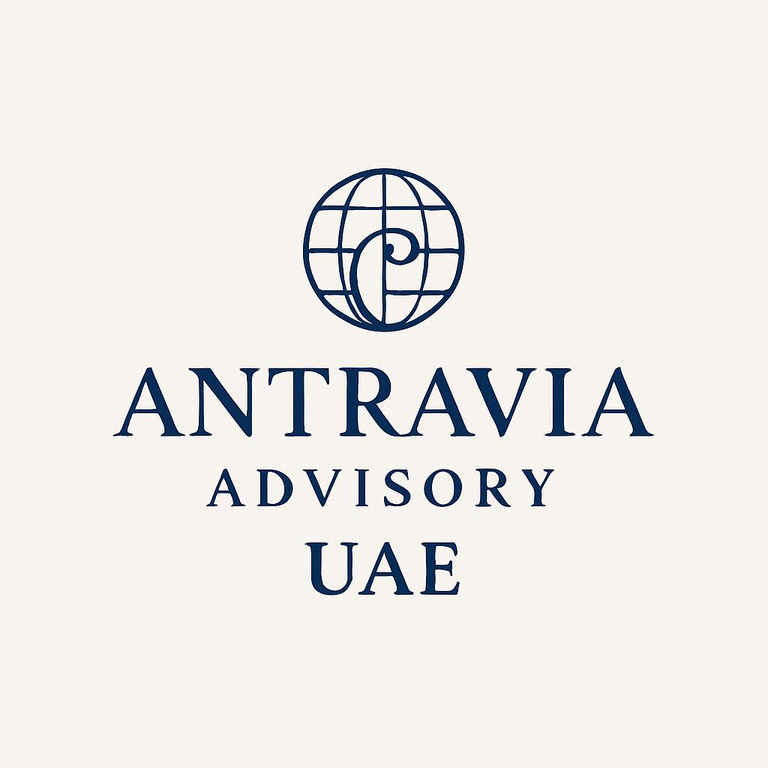Are You Financially Ready for 2026? The 10-Point Financial and Compliance Test for UAE Travel and Hospitality Businesses
The UAE travel market is entering 2026 stronger than ever. Dubai and Abu Dhabi continue to attract record visitor numbers, and outbound leisure demand is rising across the GCC. Yet financial compliance in the UAE is tightening - Read the Antravia UAE's 2026 guide.
TRAVEL FINANCE AND ACCOUNTING BLOG - U.A.E EDITION
10/18/20255 min read


Are you Financially Ready for 2026?
The 10-Point Financial and Compliance Test for UAE Travel and Hospitality Businesses
The UAE travel market is entering 2026 stronger than ever. Dubai and Abu Dhabi continue to attract record visitor numbers, and outbound leisure demand is rising across the GCC. Yet financial compliance in the UAE is tightening.
New corporate tax enforcement, enhanced economic substance rules, and increased scrutiny on client-money handling and AML obligations mean that many travel businesses will start 2026 facing their first true financial audit under the UAE’s modernized framework.
Being financially ready is about proving financial control, compliance, and credibility.
Here’s Antravia’s 10-point test to help UAE-based travel businesses assess their readiness for 2026.
1. Corporate Tax Registration and Compliance
The UAE Corporate Tax Law (Federal Decree-Law No. 47 of 2022) applies to most travel businesses at a 9% rate on taxable income exceeding AED 375,000.
Have you registered for corporate tax with the Federal Tax Authority (FTA)?
Are you maintaining accounting records that meet FTA audit standards?
Have you assessed whether your business qualifies as an exempt “qualifying free zone person” (QFZP) — and are you compliant with substance tests?
✅ Small agencies: File a simplified tax return and maintain complete records for at least seven years.
✅ Medium agencies: Perform quarterly tax provisioning and align management accounts to IFRS for audit readiness.
2. Business Licensing and Economic Substance
Travel companies operating across emirates must ensure licenses reflect their actual activity, ticketing, inbound DMC, corporate travel, or OTA.
Is your trade license current and matched to your operational scope?
Have you filed your Economic Substance Notification (ESR) if your entity performs relevant activities such as distribution, headquarters, or holding functions?
For mainland entities, are you compliant with Department of Economy & Tourism (DET) and Ministry of Economy renewals?
✅ Independent agents: Keep a valid professional license and annual ESR notification, even if nil.
✅ Medium agencies: Conduct annual compliance reviews, especially if operating multiple mainland and free zone branches.
3. Accounting Infrastructure - IFRS Compliance as Standard
The UAE mandates International Financial Reporting Standards (IFRS) for all entities subject to audit.
Are your financial statements IFRS-compliant (particularly IFRS 15 for revenue and IFRS 16 for leases)?
Are you using approved software like Xero, Zoho Books, or Tally that supports multi-currency and VAT reporting?
Are reconciliations completed monthly across booking systems, BSP, and supplier portals?
✅ Small agencies: Use cloud software with real-time VAT and multi-currency integration.
✅ Medium agencies: Implement a structured chart of accounts aligned to IFRS, with separate ledgers for client money and supplier payables.
4. Revenue Recognition - Agent vs. Principal Under IFRS 15
The agent vs. principal distinction under IFRS 15 is critical for travel businesses.
Are you recognizing only commission income when selling on behalf of suppliers?
Are packaged services or markups recorded at gross value with cost of sales disclosure?
Are overrides and incentives matched to the period earned?
✅ Small agencies: Record income net of supplier costs unless you assume full contractual responsibility for delivery.
✅ Medium agencies: Apply IFRS 15 consistently across inbound, outbound, and corporate divisions to ensure accurate margin reporting.
(For U.S. readers, see Antravia’s U.S. blog: “Are You Financially Ready for 2026?” for ASC 606 revenue guidance.)
5. Client Money and Refund Handling
With the rise of prepayments, virtual cards, and OTA partnerships, UAE agencies face growing pressure to demonstrate how they manage client funds.
Are client deposits held in segregated accounts, or co-mingled with operating cash?
Do you issue clear client-money statements on request?
Are refund policies compliant with DET and IATA standards?
✅ Small agencies: Maintain a client-money reconciliation at least monthly.
✅ Medium agencies: Operate a separate trust or escrow account, particularly for B2B or high-value group travel.
6. VAT and Indirect Tax Obligations
The UAE’s 5% VAT regime continues to create confusion in multi-jurisdiction travel bookings.
Are you charging VAT correctly for domestic vs. outbound services?
Are you reclaiming input VAT on eligible business costs?
Are you filing returns and reconciling to your accounting system every quarter?
✅ Small agencies: Use the FTA’s e-Services portal for on-time submissions.
✅ Medium agencies: Automate VAT mapping within your ERP, and review cross-border VAT exposure if selling into Saudi Arabia, Oman, or the EU.
7. Payroll, Visas, and Worker Classification
The UAE Labour Law (Federal Decree-Law No. 33 of 2021) and Wage Protection System (WPS) require accurate, timely salary payments and proper visa sponsorship.
Are all employees registered on WPS with matching MOL records?
Are freelance or commission-only agents operating legally under your license?
Are gratuity and end-of-service benefits provisioned monthly in your books?
✅ Small agencies: Maintain employee files with signed contracts and Emirates ID copies.
✅ Medium agencies: Budget for gratuity accruals and WPS compliance audits.
8. Payment, PCI Compliance, and AML Controls
Travel remains a high-risk sector for card fraud and AML breaches. The UAE Central Bank requires all licensed entities to implement anti-money laundering (AML) policies, and PCI DSS 4.0 compliance applies to all card-handling businesses.
Is your payment processor PCI DSS 4.0 compliant?
Are suspicious transactions reported under GoAML as required?
Do you maintain logs for all refund and chargeback transactions?
✅ Small agencies: Use PCI-compliant platforms like Network International, Stripe UAE, or PayTabs.
✅ Medium agencies: Conduct annual AML and PCI audits; ensure staff complete AML training under CBUAE and MOE rules.
9. Financial Oversight and Management Reporting
UAE auditors now expect quarterly management accounts, not just year-end submissions.
Do you prepare P&L, balance sheet, and cash-flow forecasts quarterly?
Are key ratios (gross margin, VAT liability, liquidity) reviewed by management?
Have you performed a tax and cash-flow stress test for 2026?
✅ Small agencies: Review profitability and cash every quarter.
✅ Medium agencies: Implement board-level reporting with scenario planning and rolling forecasts.
10. Record Retention and Audit Readiness
Under UAE Commercial Companies Law and FTA guidance, businesses must retain accounting records for at least five years (seven for tax purposes).
Are invoices and contracts stored digitally with timestamps?
Are VAT and tax filings easily retrievable for inspection?
Could you evidence ownership, accounting treatment, and substance compliance in an audit?
✅ Small agencies: Store all records digitally for five years.
✅ Medium agencies: Maintain structured document management systems with audit trails and restricted access.
Why this matters
The UAE’s low-tax environment is no longer light on compliance. Regulators now expect accounting accuracy, AML diligence, and VAT integrity to match international standards.
Small agencies that maintain clean accounting, clear VAT reconciliation, and transparent client fund records will protect their license and reputation.
Medium agencies applying IFRS standards, financial forecasting, and proper tax provisioning will be positioned for cross-border growth and partnership with global networks.
At Antravia, we help UAE travel and hospitality businesses implement IFRS-compliant accounting, manage tax exposure, and build audit-ready financial control systems.
See how your business scores on the 10-point test at antravia.ae.


References
UAE Federal Tax Authority. Corporate Tax Law (Federal Decree-Law No. 47 of 2022) – https://tax.gov.ae
UAE Ministry of Finance. Corporate Tax Cabinet Decision No. 55 of 2023 – Qualifying Free Zone Person Rules.
UAE Federal Tax Authority. Value Added Tax (VAT) Public Clarifications.
Ministry of Economy. Economic Substance Regulations (ESR) Guidance.
UAE Central Bank. AML/CFT Guidelines for Financial Institutions and Designated Non-Financial Businesses (2024).
PCI Security Standards Council. Payment Card Industry Data Security Standard v4.0 (2024).
UAE Ministry of Human Resources & Emiratisation. Federal Decree-Law No. 33 of 2021 – Labour Law.
Department of Economy & Tourism, Dubai. Travel and Tourism Licensing Regulations (2025).
UAE PDPL compliance, travel agent data protection, hospitality accounting UAE, PDPL fines travel, data breaches UAE, Antravia UAE, personal data law UAE, GDPR UAE comparison
Antravia Advisory U.A.E.
Where Travel Meets Smart Finance
Email:
Contact us:
© 2025. All rights reserved. | Disclaimer | Privacy Policy | Terms of Use | Accessibility Statement
© 2025 — Antravia.ae part of the Antravia Group.
Antravia.com | Antravia.co.uk | Antravia.ae |
Finance.travel | Tax.travel | Consultancy.travel | Vat.travel | Vat.claims |
USSales.tax | EuroVAT.tax | UKVAT.tax |
contact@antravia.com
Antravia LLC
